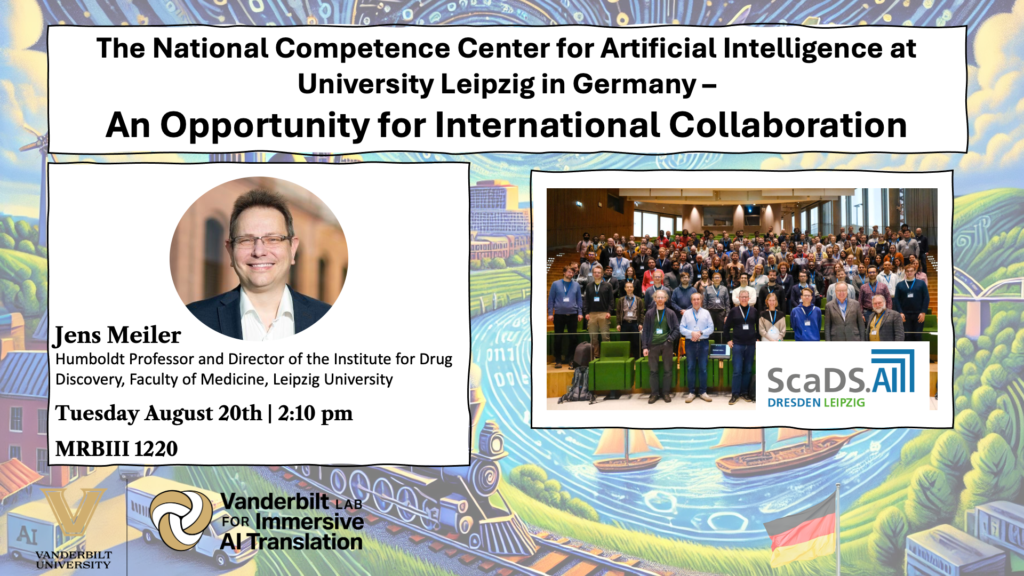
Title: The National Competence Center for Artificial Intelligence at University Leipzig in Germany – An Opportunity for International
Collaboration
Who: Jens Meiler, Director for Applied AI and Big Data in Biomedical Research and Member of the Board, Center for Scalable Data Analytics and Artificial Intelligence (ScaDS.AI), University Leipzig
Where: MRBIII 1220
When: Tuesday August 20th | 2:10 pm
Abstract: I will introduce the National Competence Center for Artificial Intelligence at the University Leipzig scads.ai, one of five centers in Germany. This center, established in 2022, brings together around 100 research groups interested in AI. It combines fundamental research in AI Algorithms and Methods with Architectures / Scalability / Security, Applied AI and Big Data, Big Data Analytics and Engineering, and Responsible AI. I will summarize activities in the area of applied AI including examples from Life Sciences and Medicine, Environmental and Earth Sciences, Software Engineering, Physics and Chemistry, Engineering and Business. I will go into depth with two selected research areas: construction of a new hardware “SpiNNaker 2.0” for modeling large neural networks with 10^10cores and 10^14 connections (i.e., the size of the human brain) and its application in biomedical research. I will describe opportunities for the exchange of faculty and students between Vanderbilt and Leipzig AI initiatives.
Biography: Research in our laboratory seeks to fuse computational and experimental efforts to investigate proteins, the fundamental molecules of biology, and their interactions with small molecule substrates, therapeutics, or probes. We develop computational methods with three major ambitions in mind: 1) to enable protein structure elucidation of membrane proteins – the primary target of most therapeutics – and large macromolecular complexes such as viruses; 2) design proteins with novel structure and/or function to explore novel approaches to protein therapeutics and deepen our understanding of protein folding pathways, and 3) understand the relation between chemical structure and biological activity quantitatively in order to design more efficient and more specific drugs. Crucial for our success is the experimental validation of our computational approaches which we pursue in our laboratory or in collaboration with other scientists. For a complete list of research projects please visit http://www.meilerlab.org/.